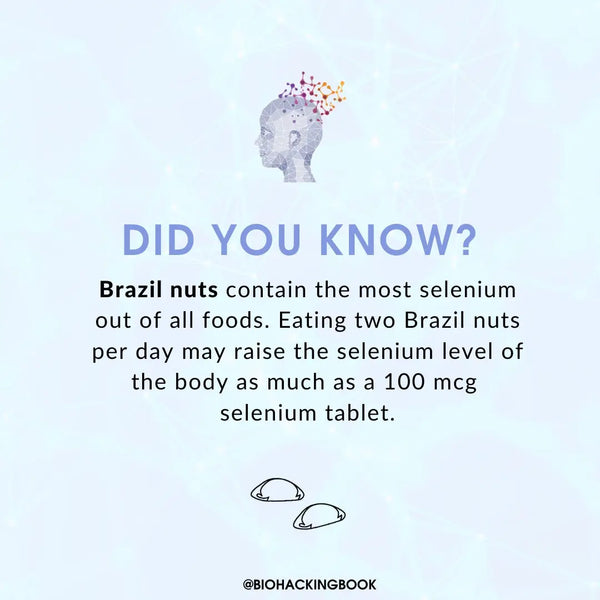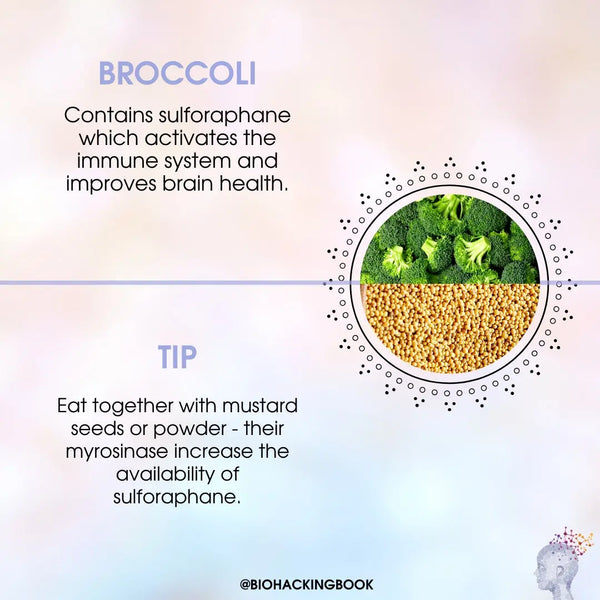Learn the best foods to support your hormonal health. These include avocado, pomegranate, broccoli sprouts and eggs to name but a few.
Hormones are signaling molecules that are produced in glands in the endocrine system and then distributed to the circulatory system to facilitate communication between organs. Hormones play an important role in multiple functions in the body such as metabolism, movement, sleep, stress, growth & development, reproduction, and mood. Hormonal health can be supported via lifestyle choices. One way is through nutrition. We have listed foods that support hormonal health, scroll down to learn how!
AVOCADO
Avocados are rich in monounsaturated fats, which are important for hormonal health. Avocado also functions as a “nutrient booster” by enhancing the body's ability to absorb fat-soluble nutrients such as vitamins A, D, K, and E. Additionally, avocados contain multiple nutrients important for hormonal health such as potassium, B vitamins (folate, thiamine, riboflavin, niacin, pantothenic acid, vitamin B6, and vitamin B12 ). Avocados also contain dietary fiber, which supports a healthy metabolism.
ALMONDS
Almonds boost the production of adiponectin, which assists in balancing blood sugar. Adiponectin is also linked to insulin sensitivity, which allows cells to metabolize glucose effectively. Balanced blood sugar is one of the main mechanisms affecting performance and focus, for example, at work. Thus almonds make an amazing snack during the workday: enjoy a handful of nuts with 25 g of dark or raw chocolate!
BRAZIL NUTS
Brazil nuts are packed with nutrients, the most prominent of which is selenium. Selenium plays a vital role in thyroid function. The thyroid gland produces hormones needed for metabolism, body temperature regulation, and growth. This makes adequate selenium levels pretty important for overall health. On average, one brazil nut contains 96 mcg (175 % RDI) of selenium, so you only need 1-3 brazil nut(s) to support your daily needs. However, the selenium content of different brazil nuts varies heavily, which means that to make sure you get enough selenium from the diet, it is recommended to measure selenium levels from whole blood. Have brazil nuts as a snack with dark chocolate or sprinkle them on top of a salad.

BROCCOLI SPROUTS
Cruciferous vegetables, especially broccoli sprouts, contain a compound called glucoraphanin, which is a precursor for a healthy phytochemical sulforaphane (SFN). Sulforaphane is an isothiocyanate that assists the liver in metabolizing estrogen. Broccoli sprouts are the richest food source of glucoraphanin (a precursor to sulforaphane) and contain up to 100 times more glucoraphanin than mature broccoli. Eating 140 g of broccoli sprouts yields about 60 mg of sulforaphane. Additionally, broccoli sprouts are more easily digested than mature broccoli. This means that you can enjoy the hormonal health benefits with fewer FODMAPS for example.

EGGS
Eggs are close to perfect when it comes to nutritional values. They’re rich in protein, vitamins, minerals, and other beneficial nutrients (including phospholipids, lutein, zeaxanthin, and choline). Egg yolks contain HDL cholesterol (“the good one”), which is essential for producing hormones. Some still avoid eggs due to fear of claimed health risks of cholesterol – even though such claims have been debunked in multiple meta-analyses. For example, a study conducted on over 1000 Finnish males found that egg (or cholesterol) intakes were not associated with increased coronary artery disease risk, even in ApoE4 carriers (i.e., in highly susceptible individuals). So, next time you cook eggs, try out the Biohacker’s Keto-omelet!
CHIA SEEDS
Chia seeds contain anti-inflammatory omega-3 fatty acid (Alpha-Linolenic Acid), which functions as a building block of hormones. Chia seeds also contain lignans, which are phytoestrogens. They bind into estrogen receptors, thus reducing excess estrogen in the body. Chia seeds are also loaded with nutrients important for hormonal health such as mono- and polyunsaturated fatty acids, manganese, magnesium, and calcium. Last but not least, chia seeds contain fiber that supports a healthy metabolism, and hence hormonal health.
POMEGRANATE
In addition to being antioxidant-rich, pomegranate supports healthy levels of estrogen in the body. Pomegranate belongs to Selective Estrogen Receptor Modulators (SERMs), which are compounds that bind into estrogen receptors. Thus, they reduce the amount of excess estrogen in the body. Pomegranate also contains ellagic acid, which inhibits an enzyme called aromatase from synthesizing estrogen from androgen. This can also prevent excess estrogen formation in the body. For example, sprinkle pomegranate seeds onto your salad or juice up the health benefits!
How do you support hormonal health with food? Tell us in the comments!




